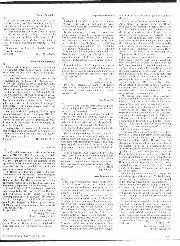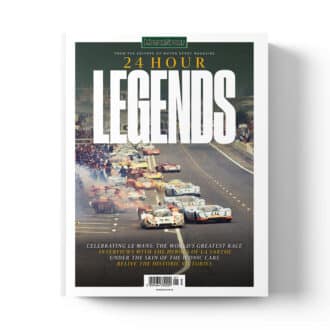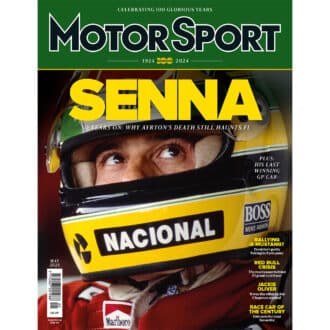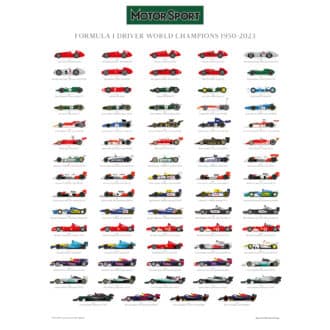
Avro Information
Sir I thoroughly enjoyed your tribute to the Avro 504 in October's issue but despite your characteristically erudite and thoroughly readable account, I would like to offer a mild challenge…
In your July issue, the editor reports that the last time he questioned the wisdom of holding races in countries with poor human rights records, some readers had told him that your magazine ‘should stay out of questions of social justice’. It’s naive to think politics and sport don’t mix; who believes Vladimir Putin’s appearances at Sochi reflect an interest in Formula 1?
Politics also featured in motor sport in June when, after the death of George Floyd, Lewis Hamilton showed his support for the Black Lives Matter movement. Few would disagree that it is laudable for Hamilton to make his support known. But I do wonder how Hamilton reconciles this with his deafening silence over participating in grands prix in countries with poor human rights records. In 2018, two days before practice began for the Abu Dhabi Grand Prix, British student Matthew Hedges was sentenced by a Dubai court to life imprisonment after a ‘trial’ lasting five minutes. Did we hear a word of concern from the F1 community? Not a whisper.
Perhaps the possible ‘recalibration’ triggered by the pandemic might prompt F1 into mulling factors other than the race fee when selecting future race venues?
John Aston, Norby, Thirsk

Stirling’s no7 Lotus en route to victory. Taken at Mosport’s Turn 5 – ‘Moss Corner’
The passing of Sir Stirling Moss brings back memories of Canada’s first internationally sanctioned motor race, the 1961 Player’s 200 at Mosport, a brand new and proper motor racing circuit, and Stirling Moss would be competing. As a witness, even at eight-years old, it was so obvious that he was a great racing driver, winning in very convincing fashion in a lime-green Lotus 19 [picture attached]. But he was more than a great racing driver, he had star quality, and the 40,000 spectators who attended that weekend event went home realising that they had witnessed something very special… World-class motor racing had finally arrived in Canada, and it was Stirling Moss who had made it happen. It was absolute magic.
Bill Wilcox, Cobourg, Ontario, Canada
Having read your tribute to Stirling, I thought I’d offer a genuine story about him. In 2006, my brother gave our cousin David Richards the Robert Edwards biography of Moss. Dave wrote to ask if Stirling would sign it, and Stirling wrote back saying he would not because the postage was too much and the post office should not gain from the endeavour. Instead, he said, come to my house, and we can talk, and you can have your book signed. Dave asked to bring us along, and so we turned up, and Stirling showed us around, we being particularly interested in the highly bent steering wheels in his office.
His delightful wife Susie indicated the importance of numbers to him. Stirling’s racing number was ‘7’, and soon after our visit Susie and Stirling’s son was to be married, on the seventh day of the seventh month of the seventh year of the millennium. Elliot had chosen that time out of respect for his father.
We asked Stirling to join us for lunch, but he declined, saying “If I went out to lunch every time I’m asked, I’d look like a barrel!”
What a fantastic guy. He didn’t need to win an F1 championship – his driving skill and his sporting attitude gave him a level of integrity hardly seen before or after.
Alan Ellis, Malvern, Worcs
Your editorial on F1’s financial future suggests that Liberty may raise hosting fees. One of the cornerstones of F1’s success over very many years was Europe’s privately financed circuits. Deep into the time after FOM had decimated a circuit’s ability to negotiate ‘sensible’ terms to host a grand prix (and remember the FIA’s role in this), I had an exchange of views with then president Max Mosley, when Silverstone was under attack yet again, requesting that the least he could do for the sport was to intervene to safeguard the British Grand Prix. He pointed out that this was beyond his remit. I said if that was a reply I had received as a tennis fan at the prospect of Wimbledon’s tournament disappearing, I would be displeased. His reply to that was that if the host could not afford to pay its competitors then the tournament deserved to perish. I agreed, but pointed out how unlikely that was; after all, Wimbledon (unlike Silverstone) held the sponsorship rights, the TV and hospitality rights and the gate receipts. His closing remark was that each sport has its own financial structure.
For the sport to be part-financed from jurisdictions who do not operate to private enterprise rules is not a problem, provided it does not destroy those that have to. Liberty, and others, need to properly understand that. None of us can do bad business indefinitely.
Mike Knight, Abbots Leigh, Somerset
I came across Tom Walkinshaw twice. First when myself and others tried to buy the Le Mans-winning Silk Cut Jaguar immediately after the race. No, he said. Secondly, when I was advising a client who was selling part of his business to Tom. We spent a great deal of time negotiating the deal with his team. Finally, we were all seated around the table about to sign up when the great man himself showed up. He looked around affably and said that he was going to tell us the way the deal was really going to be done. And he did. No doubt this was part of the psychological gamesmanship. My client thanked him very much and said that he thought the deal should go rather more his way. We gathered up our papers, got up and walked out. Never saw Tom again.
Mark Finburgh, Edgeware
I enjoyed Simon Aldridge’s feature in the july issue on the Lotus Elite but would query his statement that the Jaguar XJR-15 in 1990 was the next full resin-composite structure road-legal car. What about the Rochdale Olympic of the 1960s?
Geoff Whyler, West Wittering, Sussex
Write to Motor Sport, 18-20 Rosemont Road, London, NW3 6NE
Email: [email protected]



